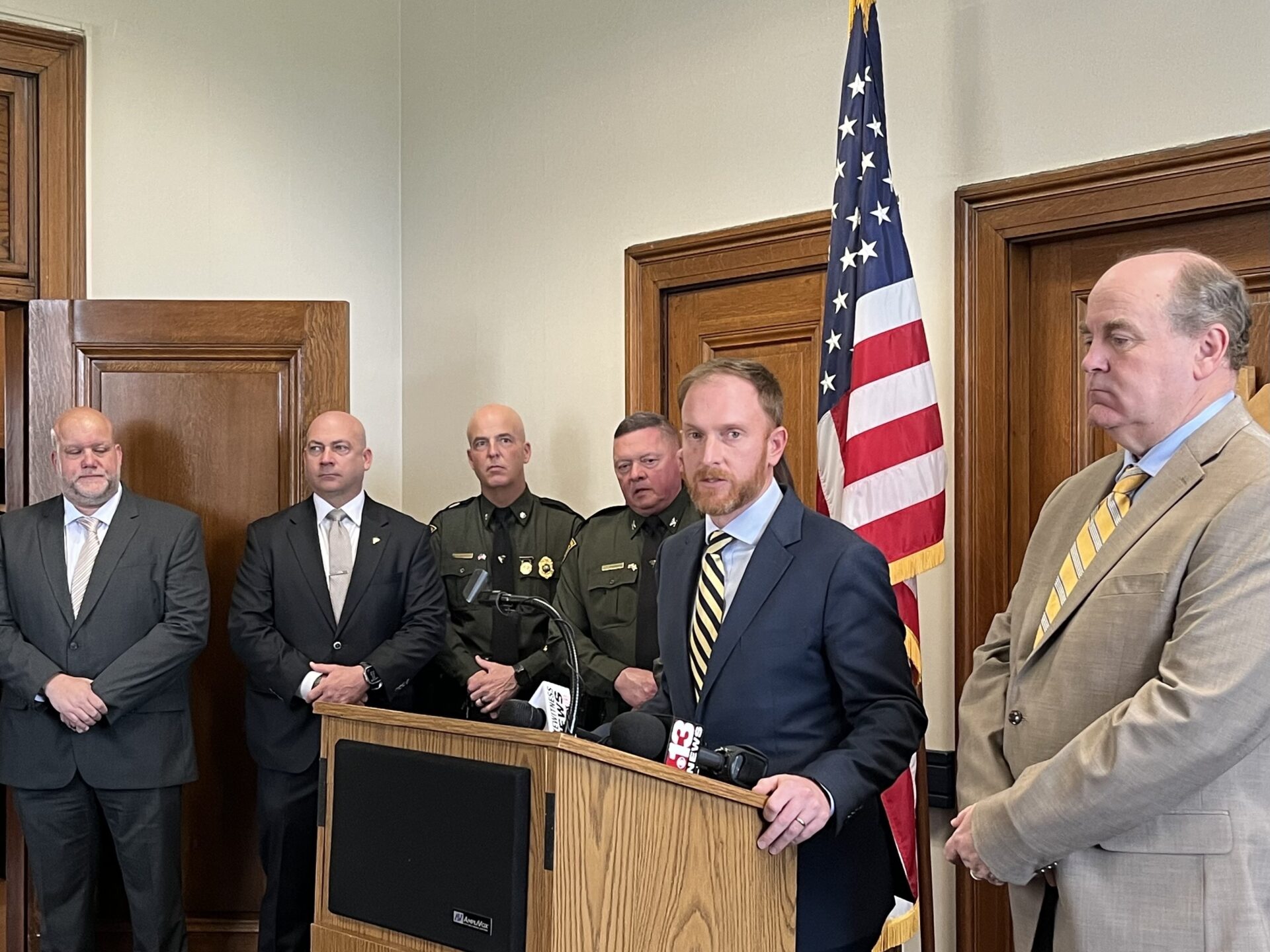State officials recovered more than $966,000 from a fraud scheme involving paper checks and a state agency, according to state Auditor JB McCuskey during a Friday press conference.
After the Department of Health and Human Resources (DHHR) sent more than $1 million in checks to a Texas vendor, it was soon intercepted as part of a fraud scheme.
Fraudsters now under investigation used a chemical agent to remove the vendor’s name from the DHHR’s checks and redirect the funds to their own accounts.
Details on the incident — like the individuals responsible, and a timeline on when the fraud and investigation occurred — remain scarce, because McCuskey said the investigation remains ongoing.
So far, approximately 85 percent of the stolen funds have been recovered by McCuskey’s office, alongside investigators with the state treasurer’s office, the U.S. attorney’s office, the governor’s office, the West Virginia State Police and Truist Bank.
Agencies involved in the investigation described the recovery of stolen funds as a success story, but one that points to deeper concerns.
“Unfortunately, in the world we live in, there are a lot of fraudsters. They are very creative,” said Truist Regional President Patrick O’Malley. “It continues to be the number one risk in the banking industry.”
McCuskey said that particular risk to the state comes from the use of paper checks to transfer large amounts of money. These can be more easily redirected by outside parties, he said.
Since taking office in 2017, McCuskey said he has made a concerted effort to reduce the number of paper checks sent by state agencies. On Friday, he urged current state officials to consider opting for electronic forms of payment instead.
“If you haven’t signed up for electronic funds transfer, please do so,” he said. “You’re actually doing yourself a favor. But more than that, you’re doing the taxpayers of West Virginia a favor because it makes our jobs in finding fraud much, much easier.”
United States Attorney for the Southern District of West Virginia Will Thompson said that instances of check fraud have been growing nationwide.
“It’s happening with obviously the state of West Virginia, but it’s also happening in private industry and private individuals,” he said. “I want to make people aware of it.”
Thompson said his office will continue to pursue a criminal investigation into the perpetrators of the fraud. He has not yet provided a timeline for the investigation or said what charges will be filed.
